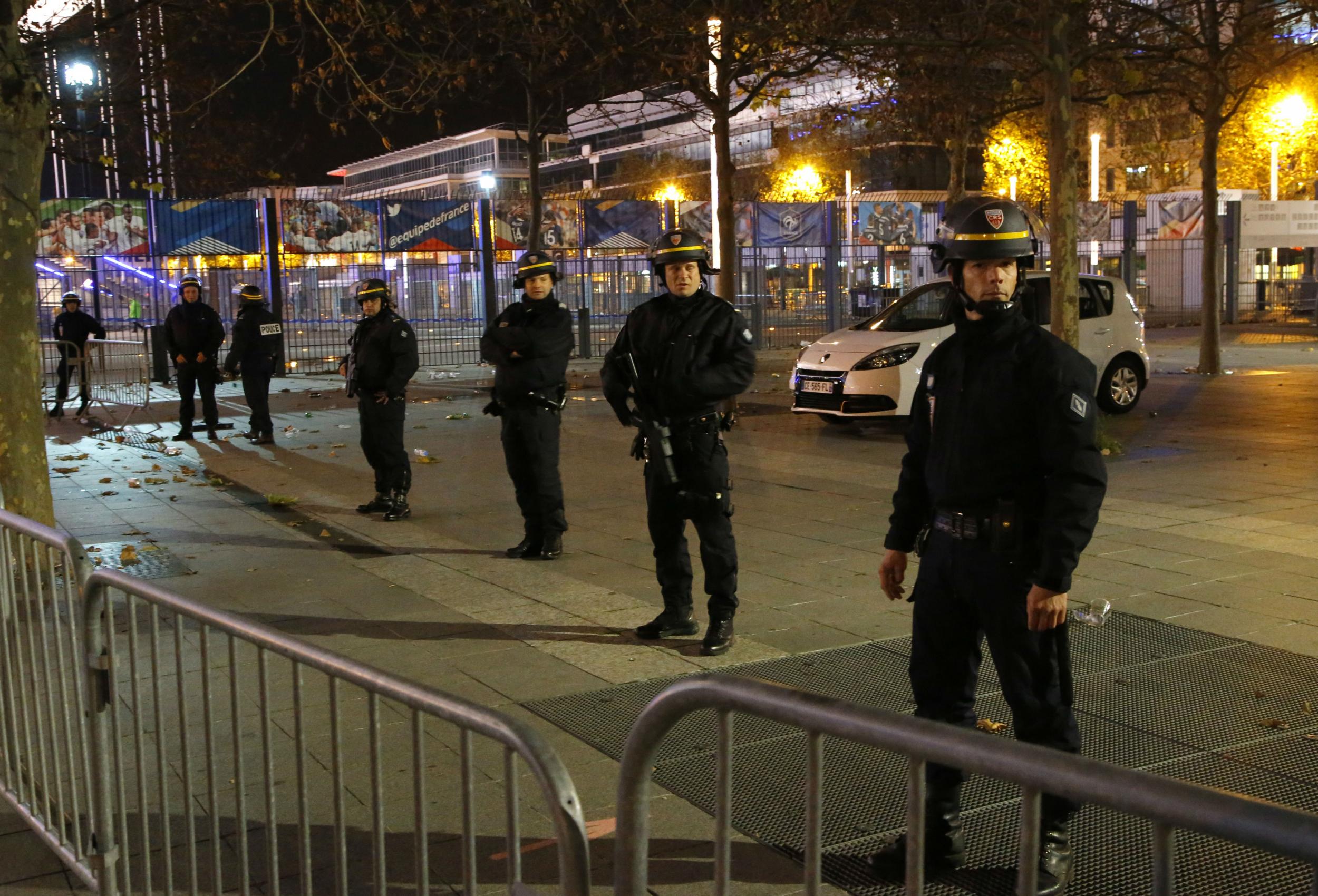Paris: Met Police hopes close ties with minority groups will give it warning of potential terrorist attacks
UK’s current security threat level is severe, meaning the authorities believe an attack is 'highly likely'

London and Paris are “linked as two of the world’s strongest capital cities and we stand to help in any way,” Sir Bernard Hogan-Howe, the commissioner of the Metropolitan Police has said. Both capitals are also linked by the common threat posed by jihadist terror groups.
After the carnage in Paris, Scotland Yard said it was urgently reviewing its tactics to deal with the same kind of simultaneous attacks in London.
“The scale of the attacks and the range of weaponry used by the terrorists are a serious cause for concern,” he admitted but reassured the public that its firearms teams were “trained to deal with this kind of incident and we are constantly evolving new ways to combat the threats to public safety”.
The UK’s current security threat level is severe, unchanged since summer 2014, meaning the authorities believe an attack is “highly likely”. The public would see a heightened police presence at UK ports and major events over the coming days in response to Paris attacks, he said.
Additional high-visibility patrols were immediately put in place to provide reassurance at key locations across the city and officers were working closely with London’s communities and businesses to offer advice, he stressed.
Police and security agencies continued to work “flat out” to protect the public, he said. “They are currently working on hundreds of active investigations and making, on average, an arrest a day,” he added.
Last summer, the Met staged a large-scale training scenario which eerily mirrored the events which unfolded in Paris on 13 November.
Mark Rowley, Scotland Yard’s specialist operations chief, appealed for greater “vigilance” from the public stressing the fight against terrorism was dependent on maintaining the trust and confidence of the UK’s communities to provide police with information about suspicious behaviour.
“We can’t let the terrorists defeat us by becoming fearful and withdrawing from the streets,” he said. “We are doing everything we possibly can do, and of course there are no guarantees.”
Security experts speaking yesterday reinforced Assistant Commissioner Rowley’s “no guarantees” assessment but pointed out the UK’s counter-terror approach was increasingly seen to bring advantages over that of France which was helping to increase Britain’s chances of avoiding an attack.
The co-operation between the police and intelligence services had massively improved since the mid-1990s when the mandate of MI5 was extended to cover serious crime. A better working relationship was further cemented when the threat from Islamist terrorism emerged. The shock of the London tube bombings in 2005 by so-called “home grown” radicals got rid of what little complacency might have existed.
Dr Frank Foley, of the department of war studies at King’s College London, who has studied Anglo-French approaches to counterterrorism, said: “France has a number of security agencies with overlapping mandates in the areas of domestic counter-terrorism intelligence and law enforcement.”
The French approach has fuelled “internecine rivalry” which can be dangerous when it comes to early sharing of intelligence that might otherwise have been developed to prevent an atrocity being carried out, explained one counterterror officer familiar with the approach in France.
Dr Foley believed the UK approach to minority groups from which terror groups draw support is significant, in being more sensitive to local communities, he said. “They’re much more aware that if their operations go wrong it can lead to an increase in community tensions.
“So they try to be proportionate and they have meetings with community representatives. Dialogue is important so that those on the ground view counter-terrorism measures as legitimate or at least that they won’t be actively hostile.”
The French approach has been more “heavy-handed”, he says. “They have shown little interest in community dialogue. As one French police officer once told me: ‘Police do police work and it’s not my job to play football with the kids in the communities.’
“I think over the long term this approach will be shown to have its limitations and that there is a benefit for counter-terrorism in having full dialogue with communities,” he added.
Senior police officers said improved relations had reaped an abundance of good intelligence for operations. But there is concern that this established, integrated approach is being put at risk.
“It used to be the case when most of the good-quality intel came from box [the security services] but that is much less now compared to that coming directly from the streets,” one senior officer said.
That fact is one reason there is growing concern that Home Office cuts are hitting the numbers of police community support officers who are deployed in many of the key communities. “At a time when we are beginning to reap the benefits of a lot of hard effort, they are being taken away. It’s senseless short-termism,” he said.
On 14 November, Assistant Commissioner Rowley stressed the community advantage when he said: “I would come back to the relationship between the police and the public and the amount of information which has been fantastic recently. We need that to continue, because it is that vigilance which gives us the first insight into a possible attack.”
